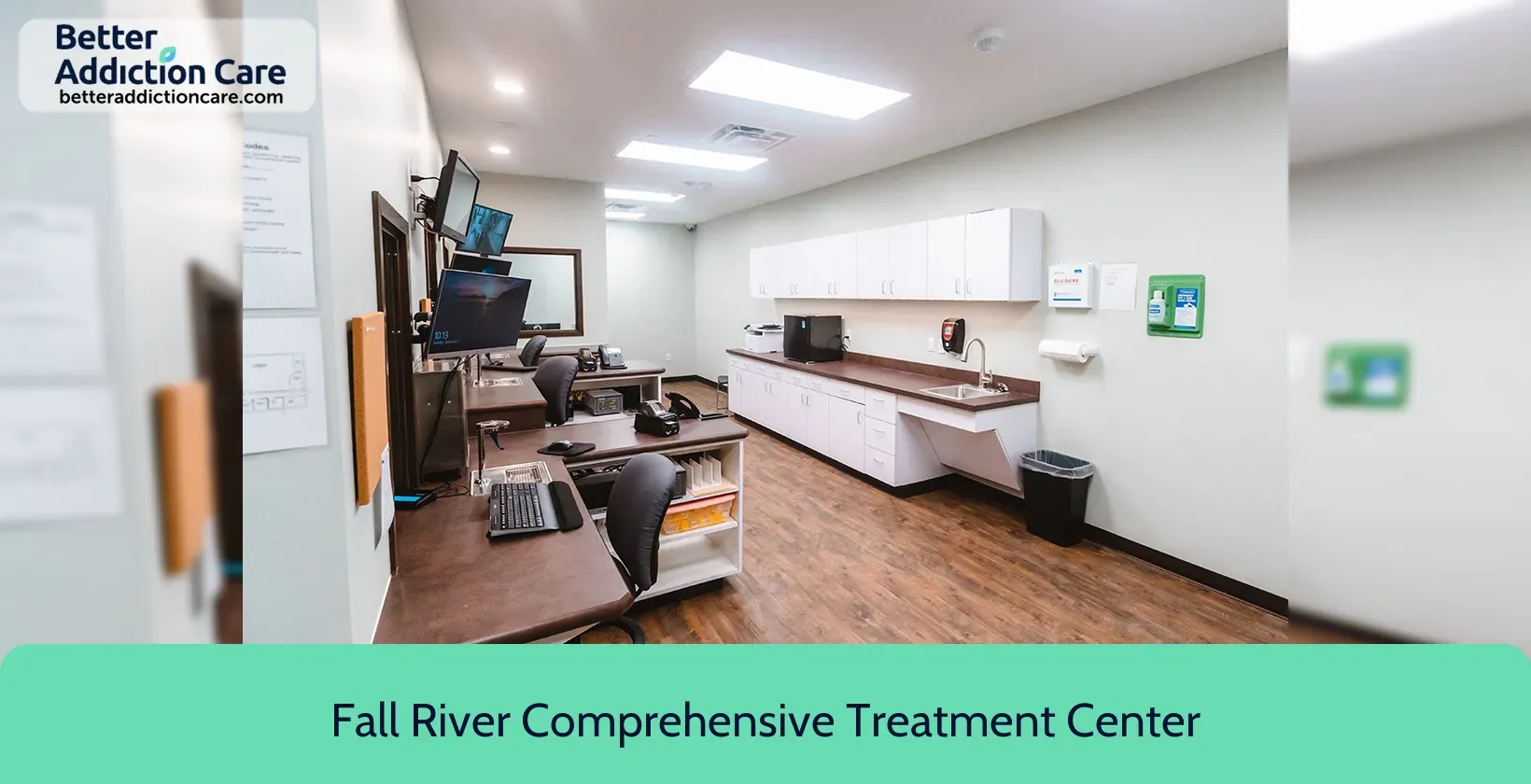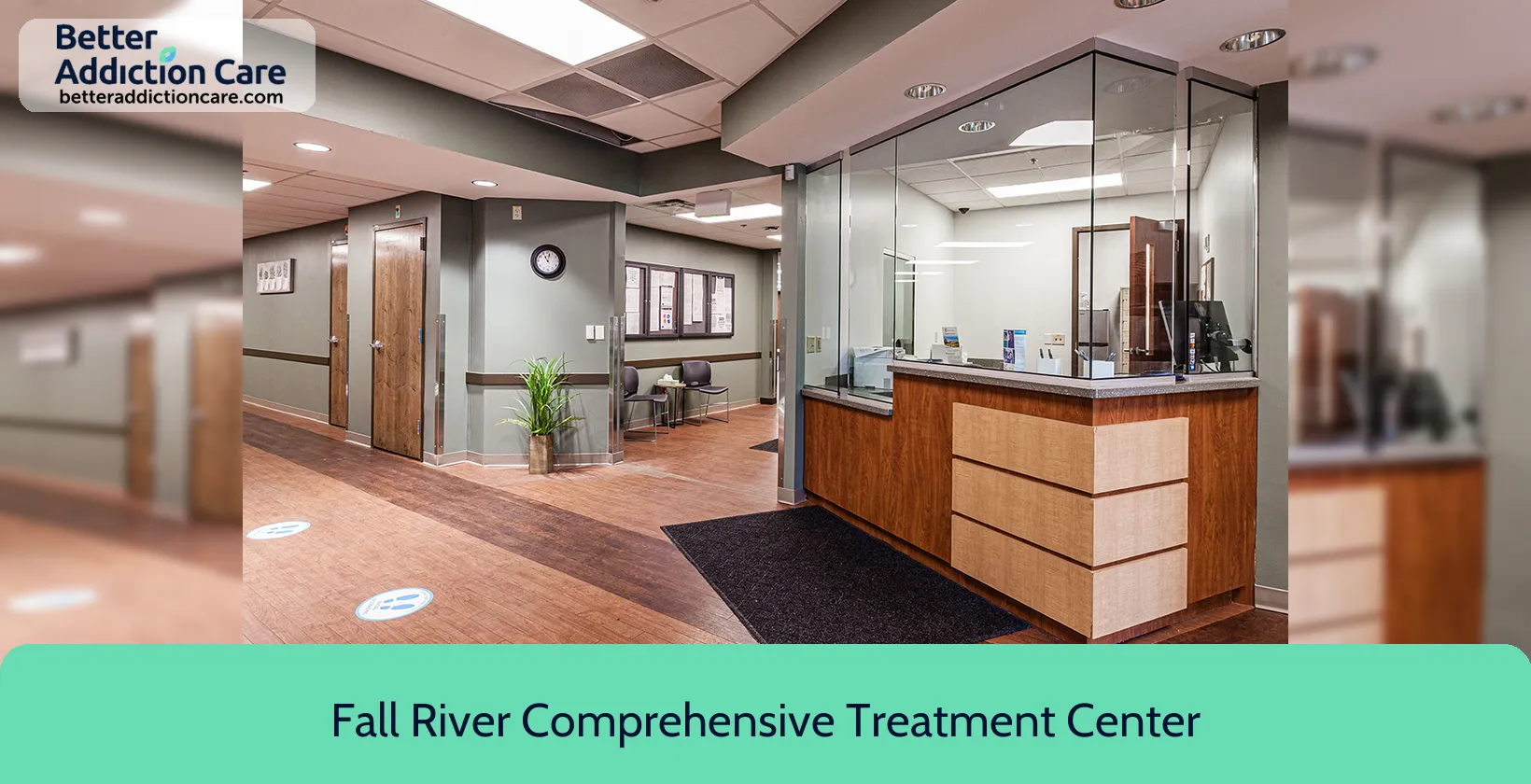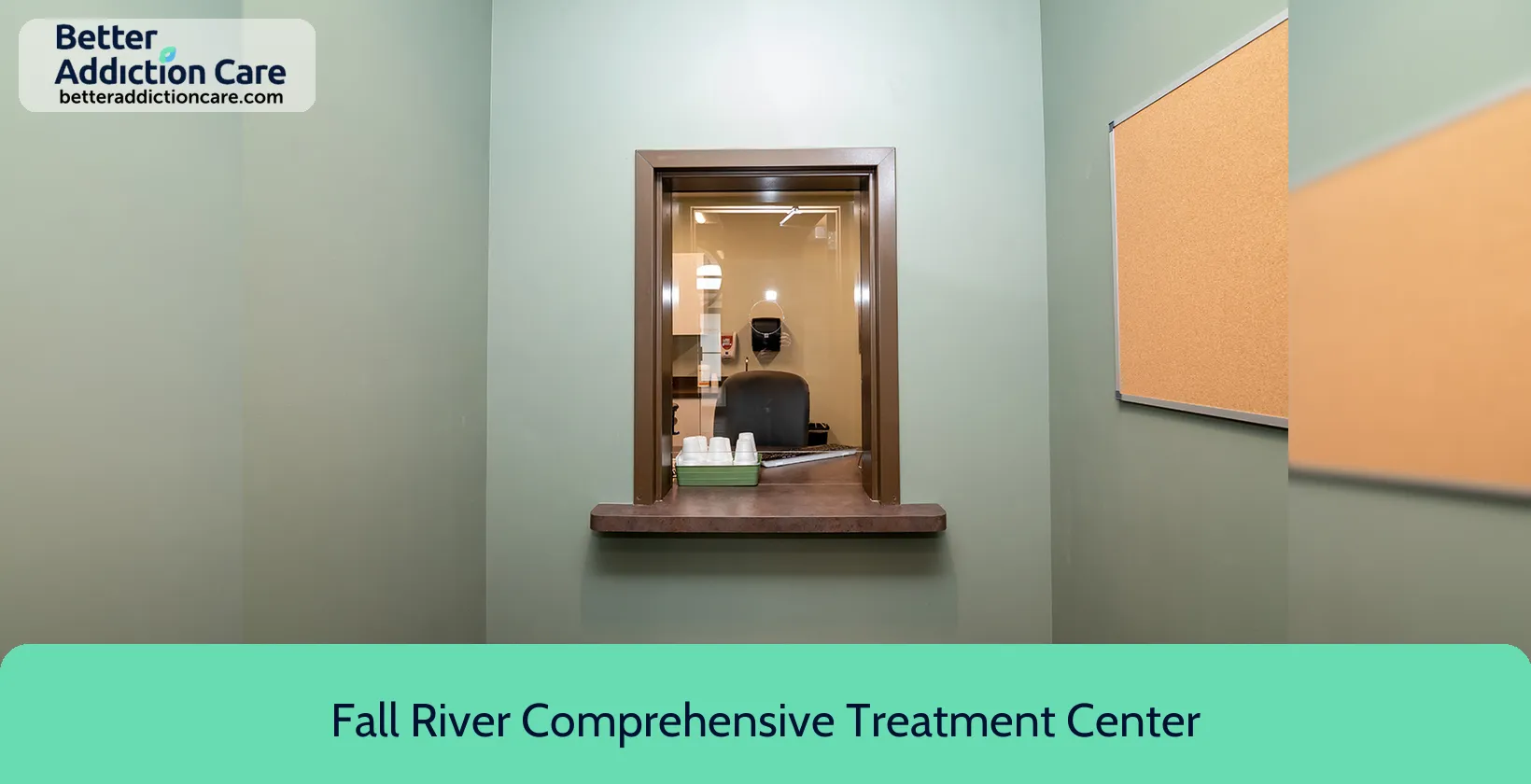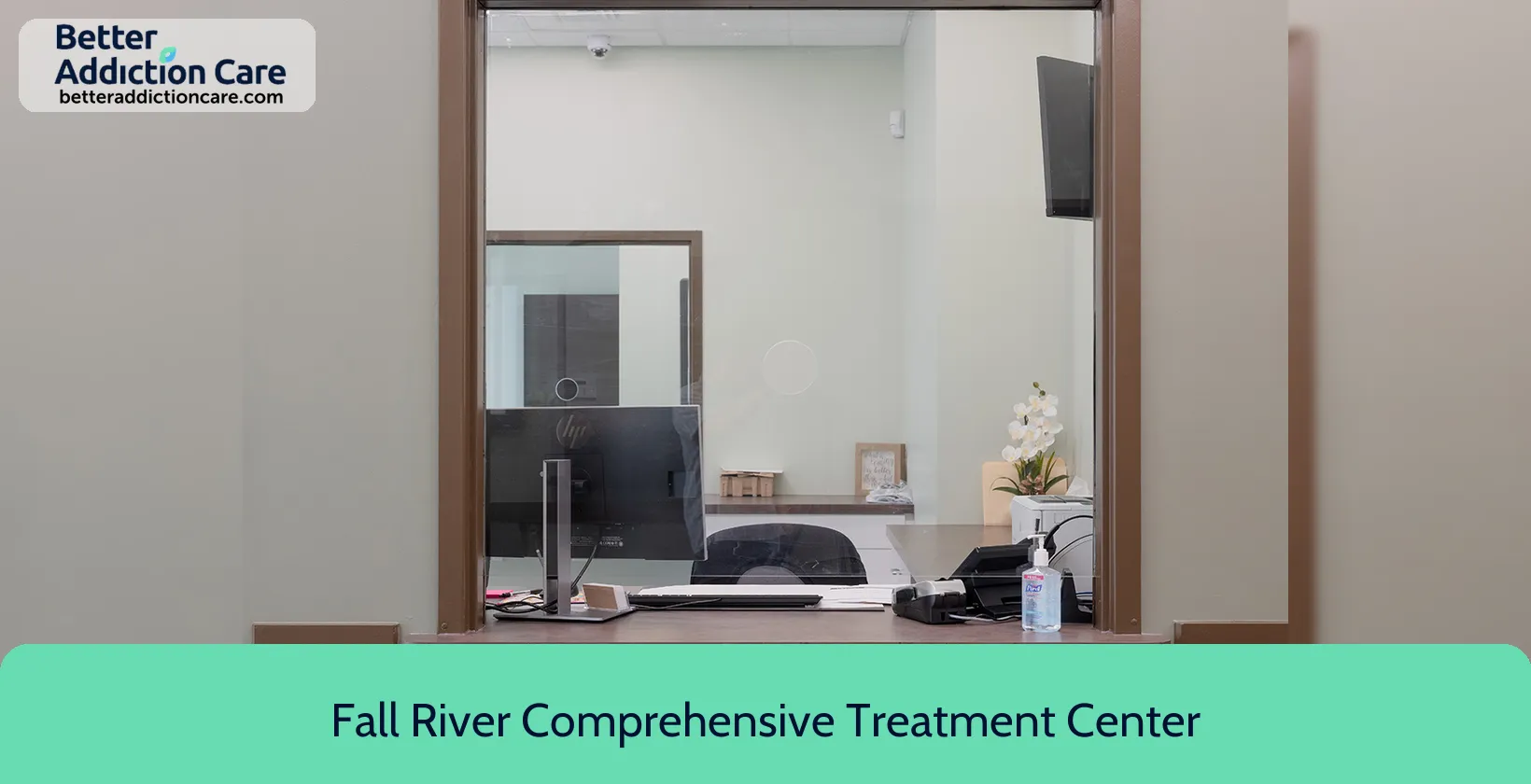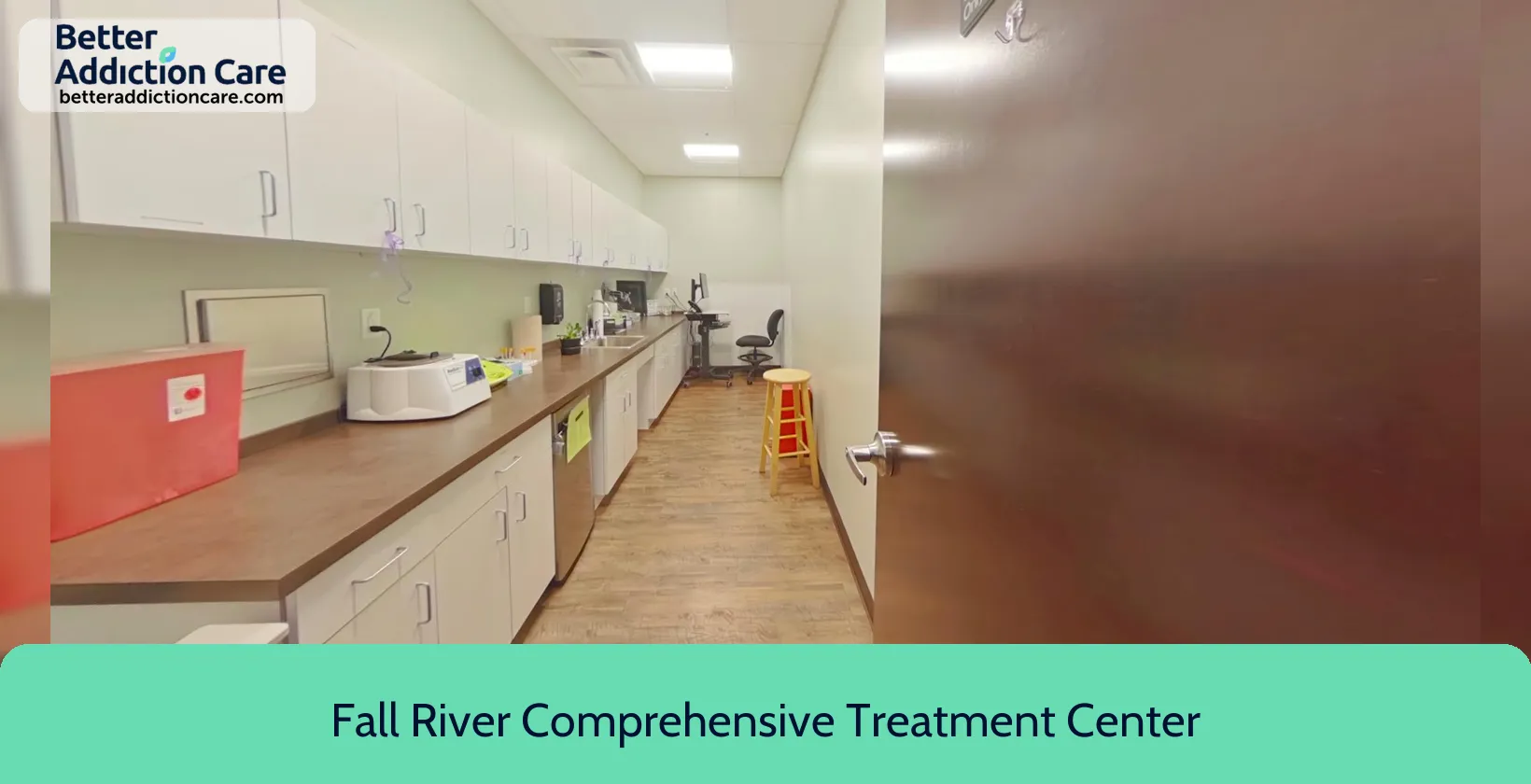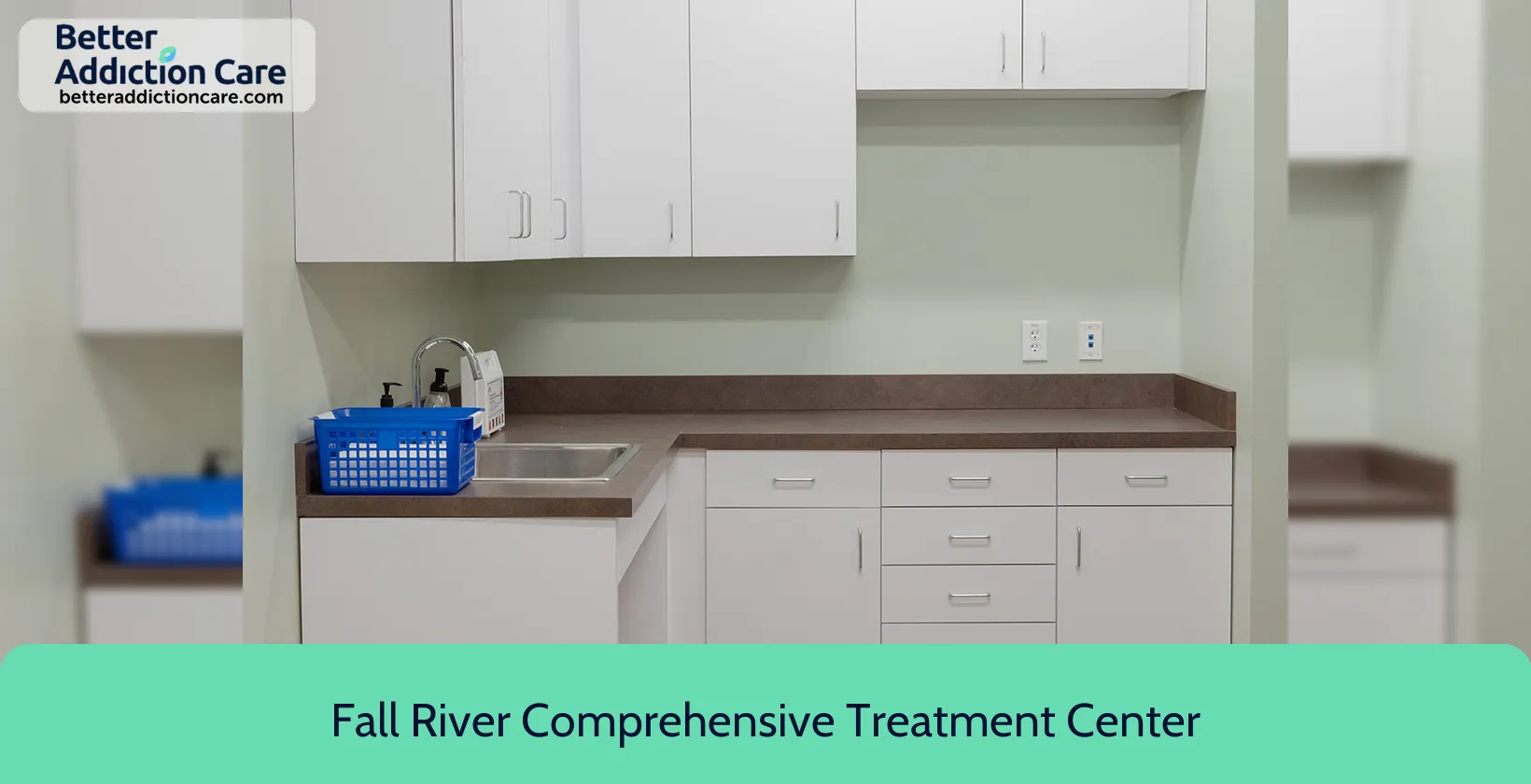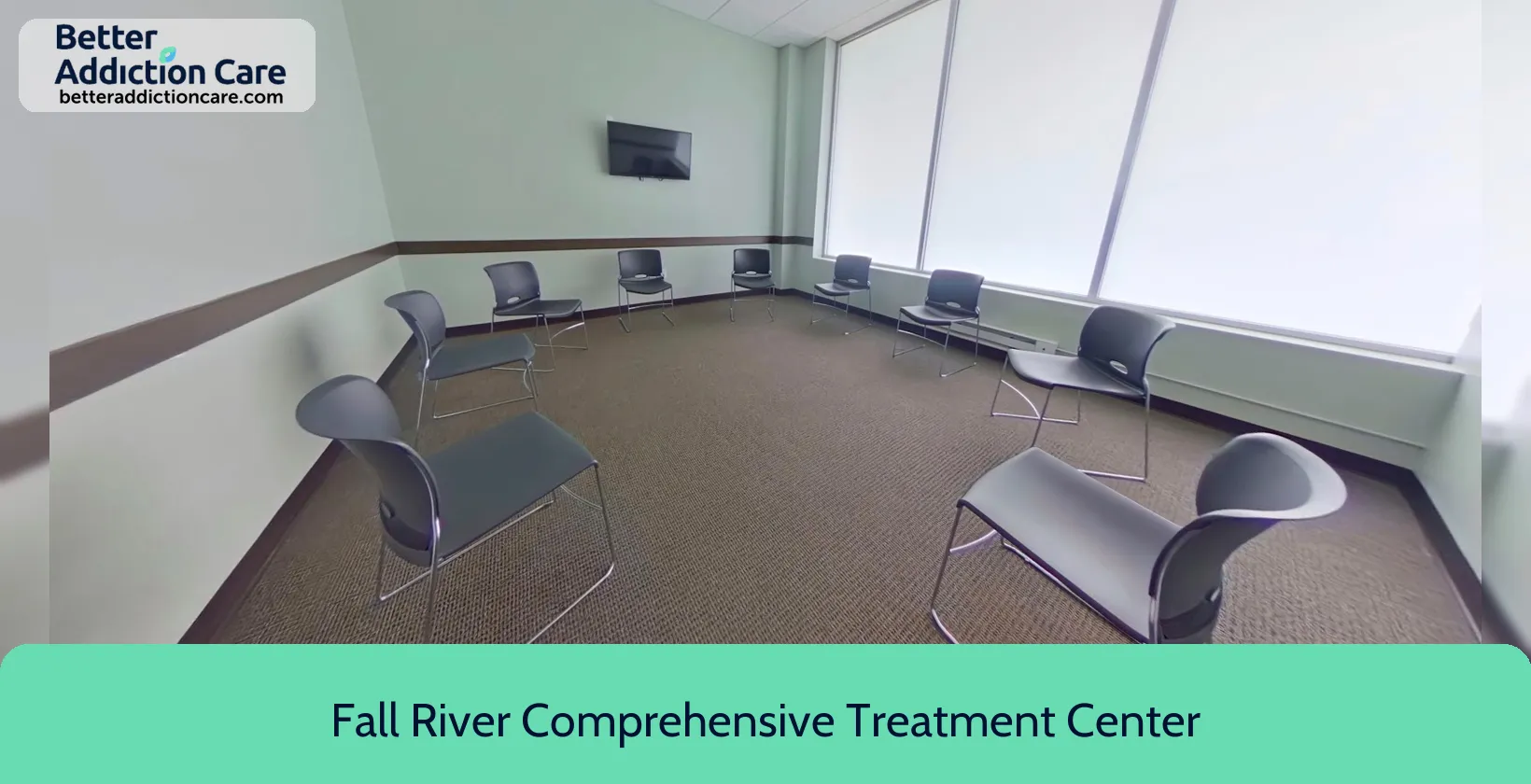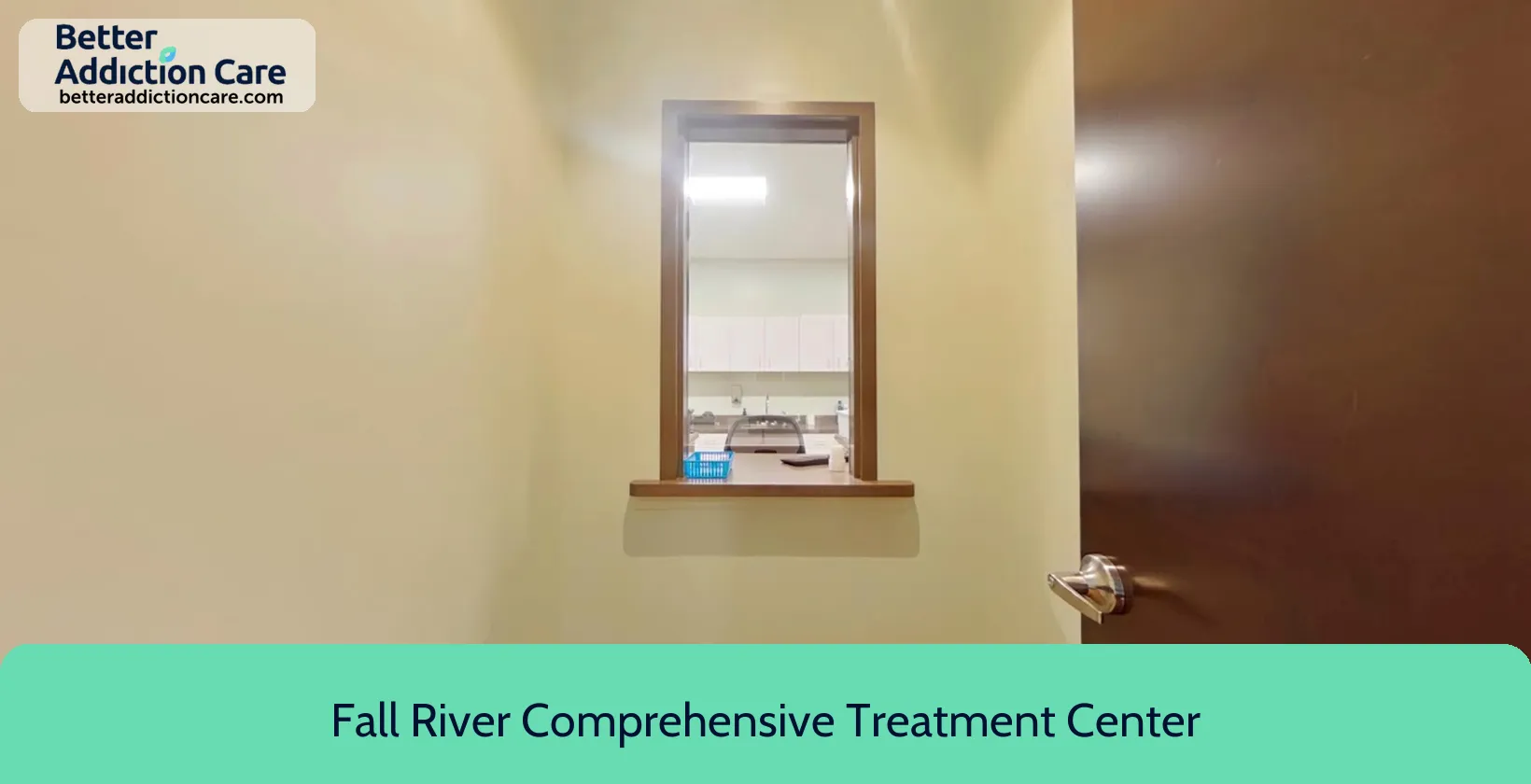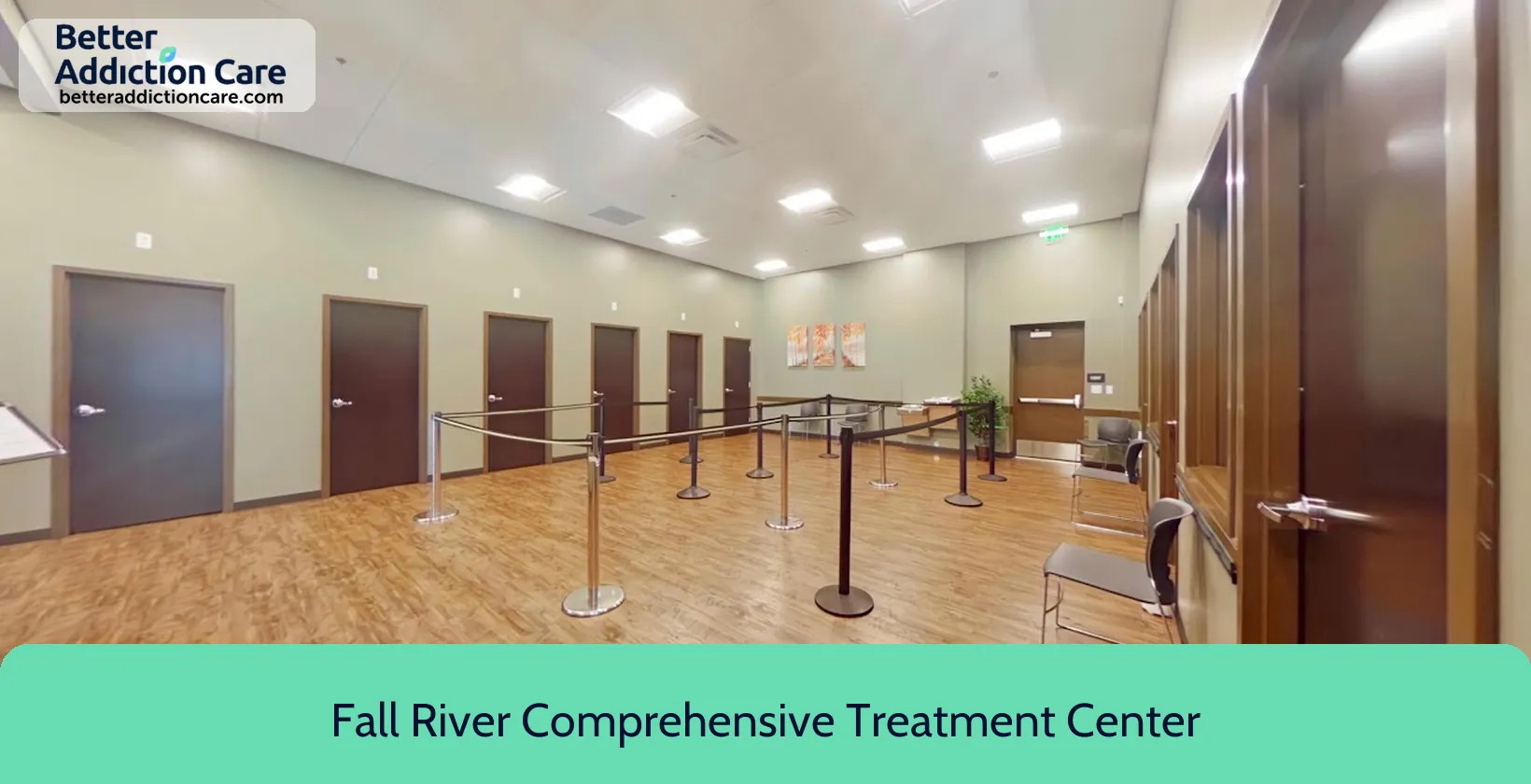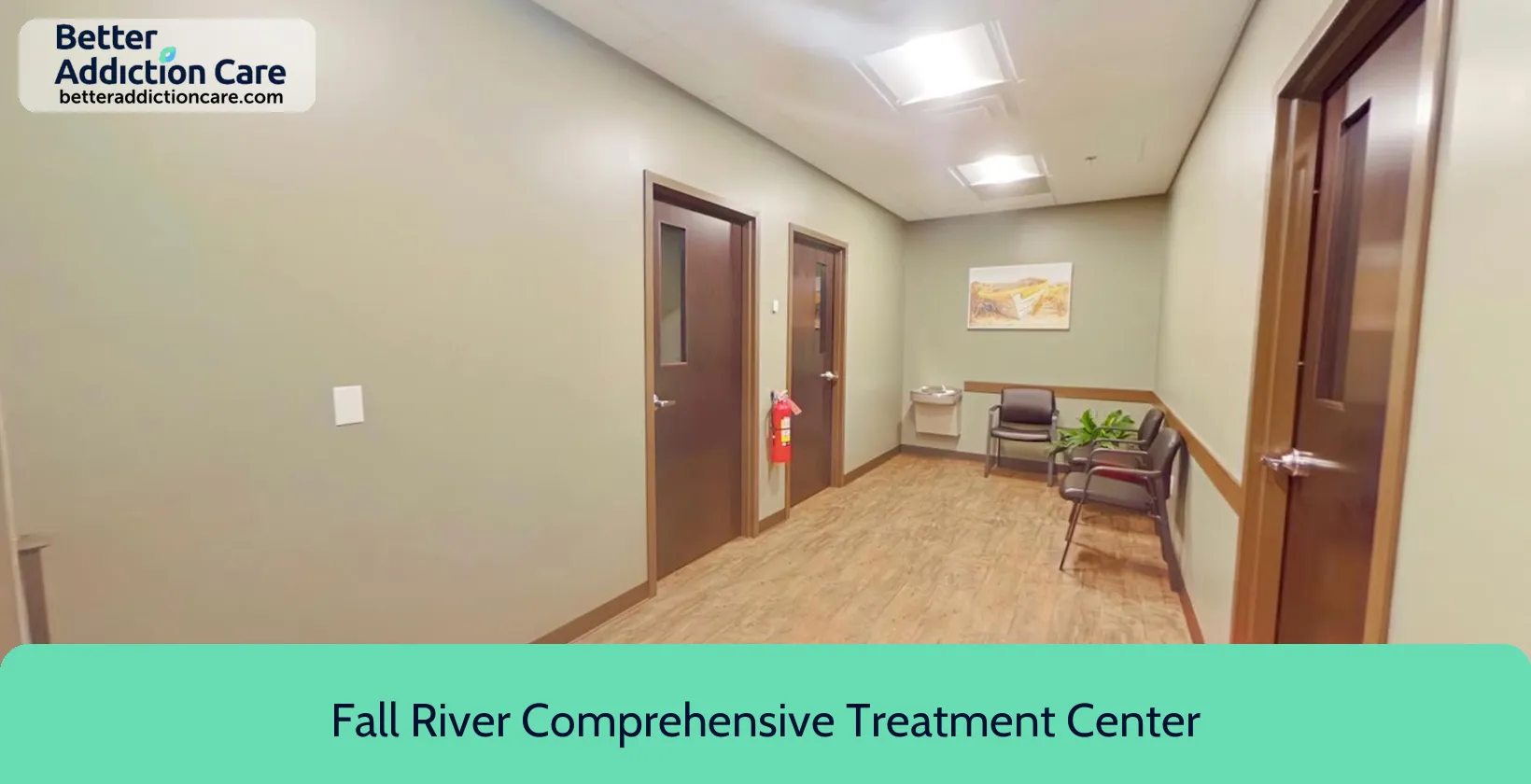Fall River Comprehensive Treatment Center
Overview
Fall River Comprehensive Treatment Center is an accredited substance abuse treatment center that provides outpatient treatment for men and women between 18 and 65+ years of age. As part of their special programs, Fall River Comprehensive Treatment Center treats clients with co-occurring mental and substance use disorders, veterans, and pregnant/postpartum women. To help patients achieve sobriety, Fall River Comprehensive Treatment Center provides intake assessments. Afterward, patients receive telemedicine/telehealth therapy, substance use disorder counseling, and smoking/vaping/tobacco cessation counseling during treatment. Fall River Comprehensive Treatment Center is located in Fall River, Massachusetts, providing treatment for people in Bristol County, accepting cash or self-payment, medicaid, and medicare.
Fall River Comprehensive Treatment Center at a Glance
Payment Options
- Cash or self-payment
- Medicaid
- Medicare
- State-financed health insurance plan other than Medicaid
- Private health insurance
Assessments
- Screening for tobacco use
- Comprehensive substance use assessment
- Outreach to persons in the community
- Screening for mental disorders
- Screening for substance use
Age Groups
- Seniors or older adults
- Young adults
- Adults
- Seniors
Ancillary Services
- Case management service
- Social skills development
- Opioid use disorder clients only
Highlights About Fall River Comprehensive Treatment Center
7.28/10
With an overall rating of 7.28/10, this facility has the following balanced range of services. Alcohol Rehabilitation: 8.00/10, Drug Rehab and Detox: 7.23/10, Treatment Options: 7.21/10, Insurance and Payments: 6.67/10.-
Alcohol Rehabilitation 8.00
-
Drug Rehab and Detox 7.23
-
Treatment Options 7.21
-
Insurance and Payments 6.67
Accreditations
Commission on Accreditation of Rehabilitation Facilities (CARF):

Established in 1966, the non-profit organization known as the Commission on Accreditation of Rehabilitation Facilities (CARF) has a dedicated focus on accrediting rehabilitation organizations. CARF's primary mission is to assist service providers, particularly rehabilitation facilities, in upholding and promoting the highest standards of care.
Registration: 39221
SAMHSA certification for opioid treatment program (OTP):
SAMHSA's Opioid Treatment Programs (OTP) accreditation is a prestigious recognition that signifies a program's compliance with stringent standards and guidelines established by the Substance Abuse and Mental Health Services Administration (SAMHSA). This accreditation demonstrates an OTP's commitment to providing high-quality, evidence-based care for individuals struggling with opioid use disorder (OUD). It serves as a trusted symbol of accountability and excellence, assuring patients, families, and communities that the OTP offers safe, effective, and comprehensive treatment options for OUD.
NAATP:

The NAATP accreditation is a recognized certification for addiction and behavioral health facilities. This accreditation serves as a validation of a center's commitment to maintaining high standards in the field. It signifies that the facility has met specific criteria and requirements set by NAATP, ensuring that individuals seeking addiction and behavioral health services can expect a level of quality and professionalism in their care. NAATP accreditation is a notable benchmark for facilities striving to provide effective and ethical treatment within this critical healthcare sector.
State department of health:

Government agencies issue State Licenses, granting rehabilitation organizations permission to operate their businesses legally within specific geographic regions. The licenses needed for legal operation are typically determined by the type of rehabilitation program offered by a facility and its physical location.
Treatment At Fall River Comprehensive Treatment Center
Treatment Conditions
- Alcoholism
- Substance use treatment
Care Levels
- Outpatient
- Outpatient methadone/buprenorphine or naltrexone treatment
- Regular outpatient treatment
- Aftercare
Treatment Modalities
- Telemedicine/telehealth therapy
- Substance use disorder counseling
- Smoking/vaping/tobacco cessation counseling
- Group counseling
- Family counseling
Ancillary Services
Languages
- Sign language services for the deaf and hard of hearing
- Spanish
- Other languages (excluding Spanish)
- French
- Portuguese
Additional Services
- Pharmacotherapies administered during treatment
- Mentoring/peer support
- Breathalyzer or blood alcohol testing
Special Programs
- Clients with co-occurring mental and substance use disorders
- Veterans
- Pregnant/postpartum women
- Clients with HIV or AIDS
- Clients who have experienced trauma
Get Help Now
Common Questions About Fall River Comprehensive Treatment Center
Contact Information
Other Facilities in Fall River

6.62

6.99

7.02

7.14

8.03
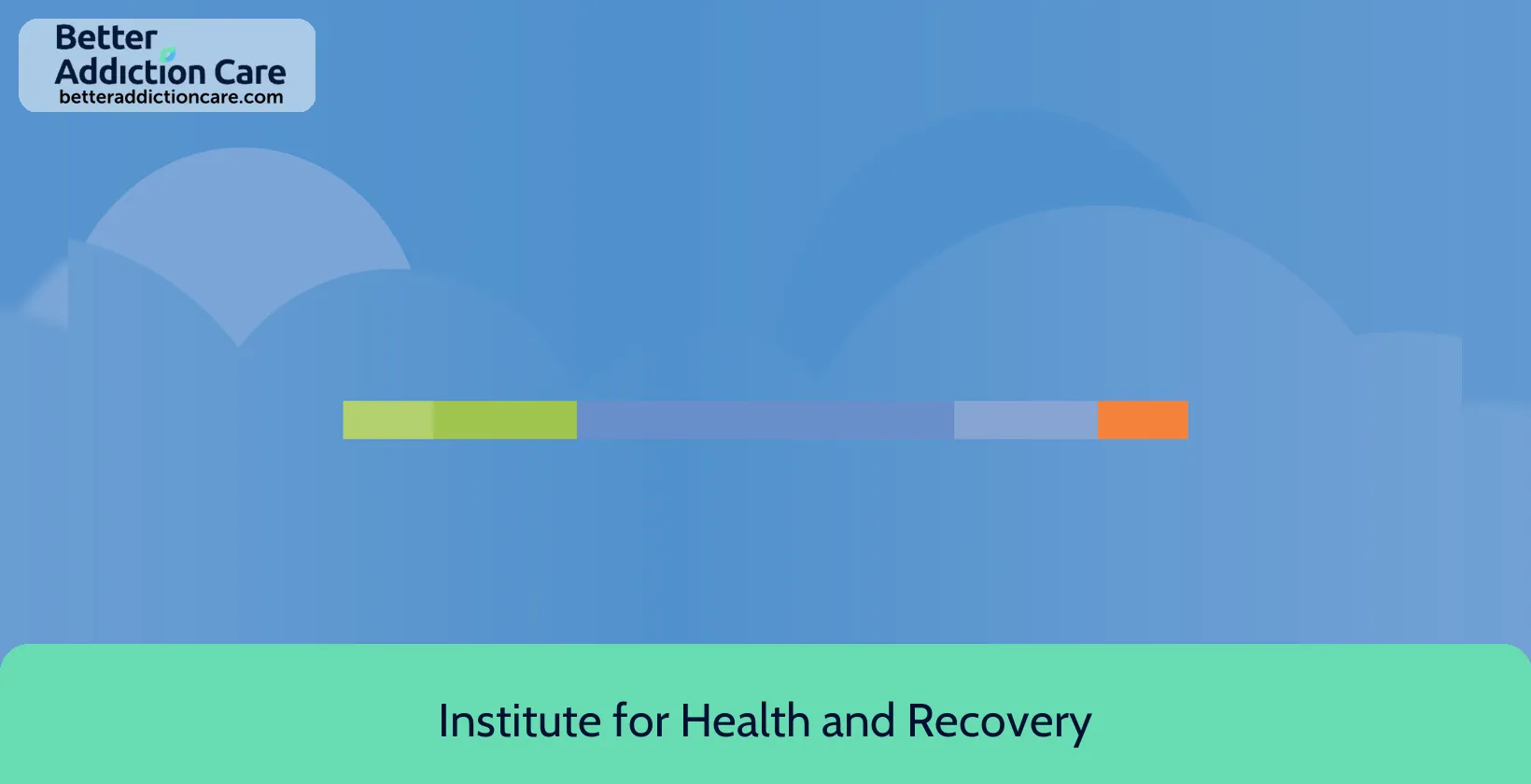
6.86
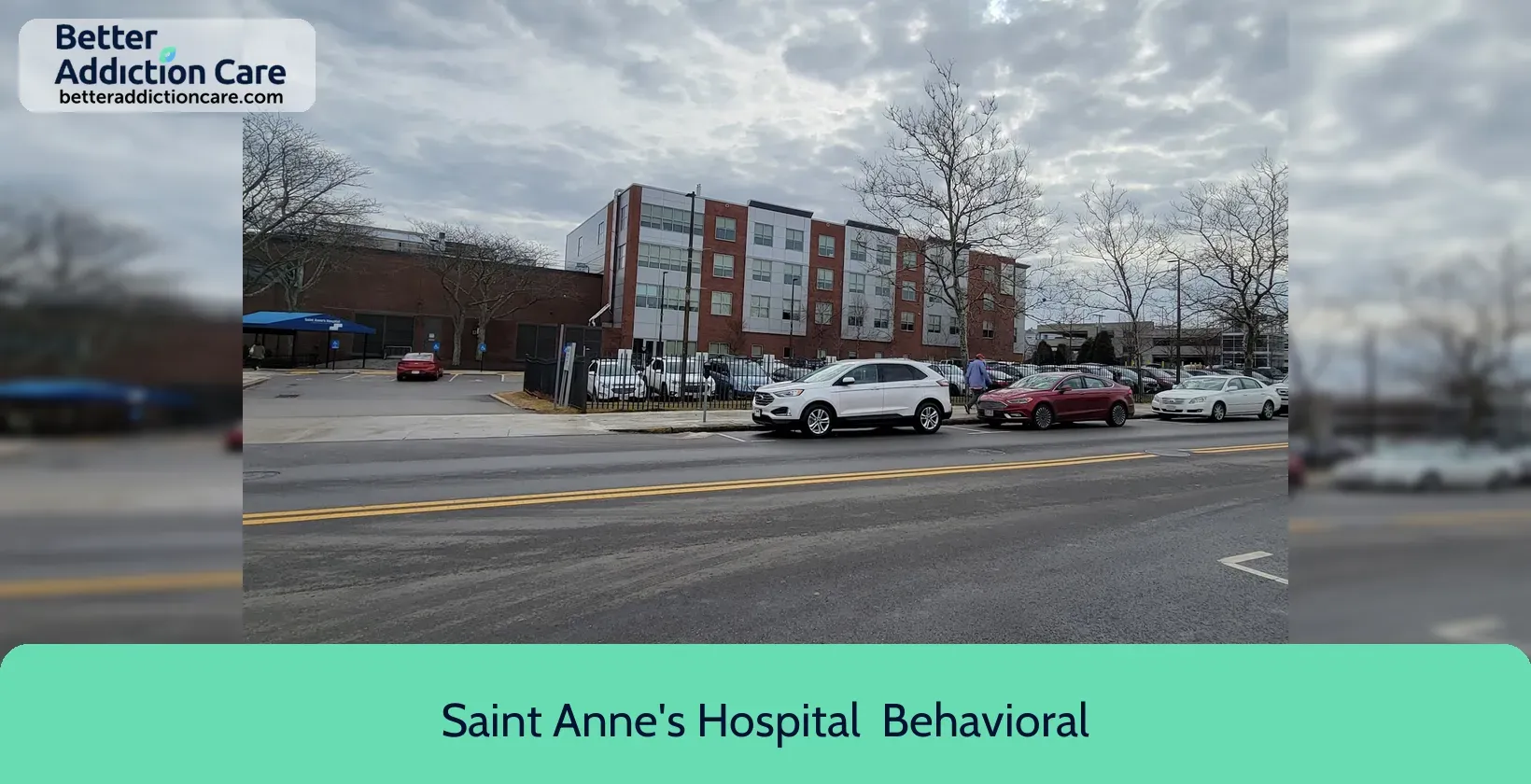
6.76
DISCLAIMER: The facility name, logo and brand are the property and registered trademarks of Saint Anne's Hospital - Behavioral Health, and are being used for identification and informational purposes only. Use of these names, logos and brands shall not imply endorsement. BetterAddictionCare.com is not affiliated with or sponsored by Saint Anne's Hospital - Behavioral Health.
